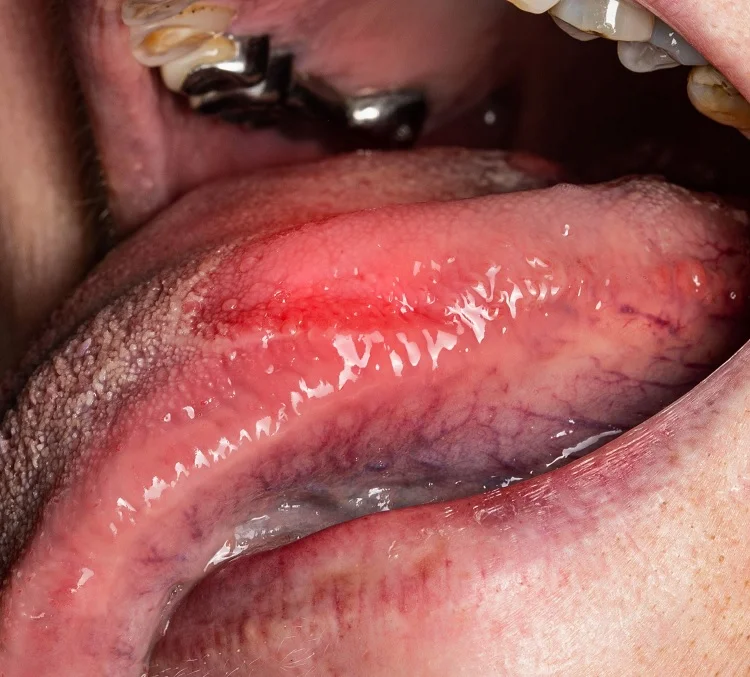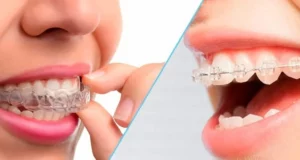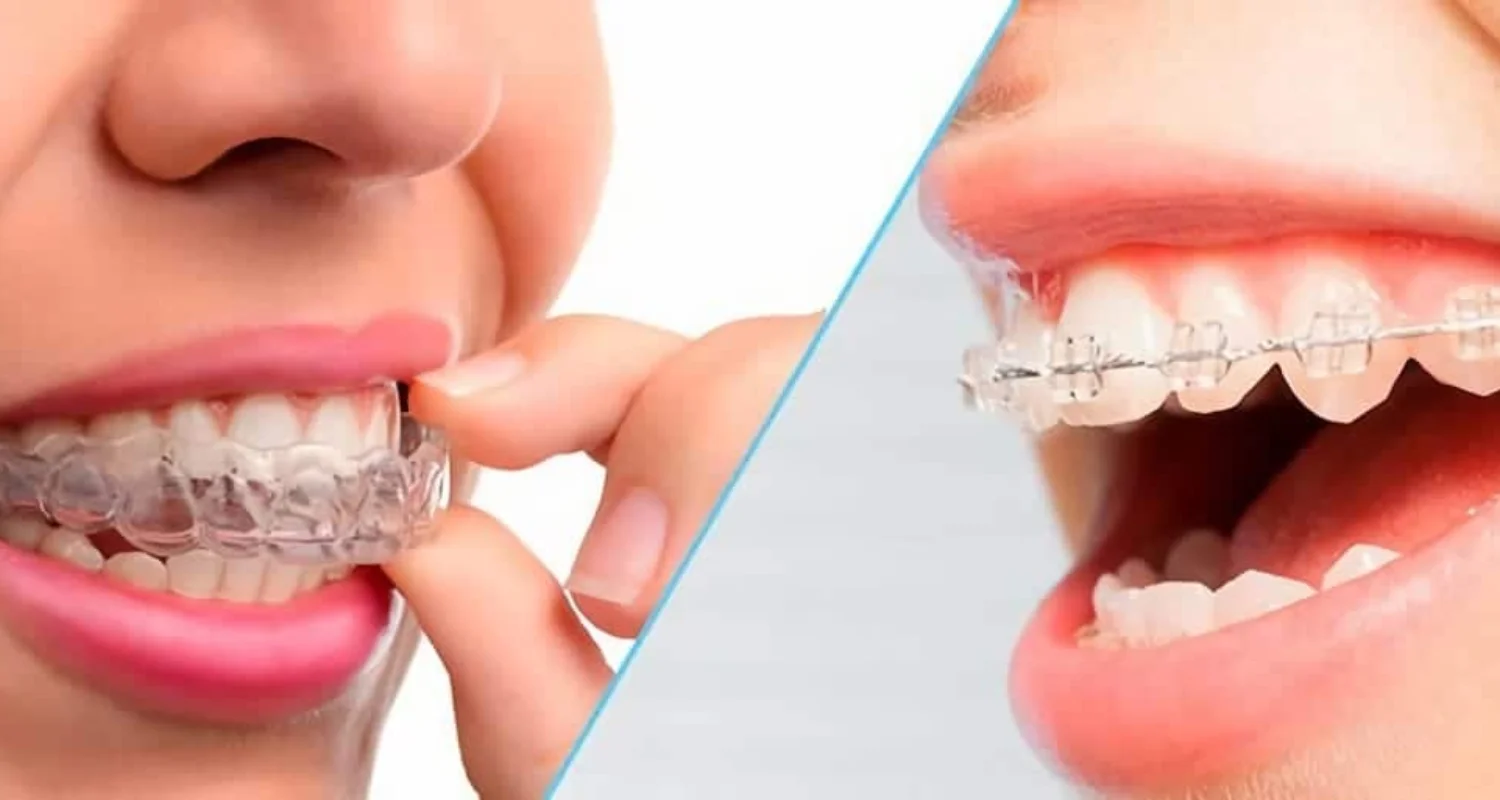Last Updated on: 31st May 2024, 08:19 am
✓ Fact Checked 🕓
❙ Our team of writers, editors, and medical experts rigorously evaluates each article to ensure the information is accurate and exclusively cites reputable sources.
❙ We regularly assess how the content in this article aligns with current scientific literature and expert recommendations in order to provide the most up-to-date research.
What is Burning Mouth Syndrome? Why does it occur? What are the symptoms? What treatments are available? Are there any alternatives to manage the situation?
Burning Mouth Syndrome (BMS) is a condition that produces a burning sensation in the mouth, along with tingling and discomfort in the tongue or inside the cheeks. It can make it difficult to eat and speak. BMS is also known as glossodynia or burning tongue syndrome.
These are the questions that guide the development of this note and are answered in the following paragraphs.
What is Burning Mouth Syndrome?

BMS is a condition that causes a burning sensation in the mouth and tingling, which may be associated with dryness of the mouth or an altered taste.
The syndrome can affect the gums, the inside of the cheeks, the lips, the tongue, the palate, or extensive areas of the mouth. As a consequence of the syndrome’s discomfort, it can be difficult to sleep and eat.
It is a condition that can occur suddenly but may evolve and persist for months or even years.
Who can have Burning Mouth Syndrome?
Burning Mouth Syndrome is more common in people over 60 years old and in postmenopausal women due to a reduction in estrogen levels, which is also a cause of reduced taste sensitivity.
It is estimated that glossodynia is five times more frequent in women than in men.
What Causes Burning Mouth Syndrome?

Various circumstances can trigger Burning Mouth Syndrome. Research into this condition indicates two types:
1. Primary (Idiopathic) Syndrome
This is the type of Burning Tongue Syndrome that is not the result of an existing health condition. It is considered that this syndrome has caused problems with the sense of taste and damage to the sensory nerves of the central or peripheral nervous system.
2. Secondary Syndrome
This is a consequence of previous medical conditions and requires treatment. The most common causes are:
• Allergies to dental products, certain foods, or materials.
• Low levels of B vitamins, including B1 (thiamine), B2 (riboflavin), B6 (pyridoxine), B9 (folate), B12 (cobalamin), folic acid, iron, and zinc
• Dry mouth (xerostomia) that can be a consequence of radiotherapy treatments, consumption of some medications, or problems with the functioning of the salivary glands.
• Hormonal changes due to diabetes or thyroid problems.
• Consumption of medications that reduce blood pressure.
• Depression
• States of anxiety, depression, or stress.
• Excessive irritation of the mouth due to aggressive brushing of the tongue, use of abrasive toothpaste, intense use of mouthwashes, or consumption of acidic beverages.
• Oral infection (candidiasis, oral lichen planus).
• Habits such as jaw clenching or teeth grinding.
• Acid reflux
• Endocrine disorders/diabetes, underactive thyroid gland (hypothyroidism).
• Wearing ill-fitting dentures
People with Sjörgren’s syndrome, diabetes, thyroid or liver problems are often more prone to burning mouth syndrome.
People with BMS do not experience discomfort at the start of the day, but over the day, the burning sensation and pain develop. The next day, the cycle repeats itself.
Other health conditions that may increase the predisposition to glossodynia include fibromyalgia, neuropathy, Parkinson’s disease, and autoimmune disorders.
Symptoms and diagnosis
For treatment, if Burning Mouth Syndrome (BMS) is derived from oral habits such as clenching the jaw or grinding the teeth, the dentist will guide to facilitate control of those behaviors.
Medications may be prescribed to manage pain and relieve the sensation of dryness in the mouth (dry mouth).
Burning Mouth Syndrome is a complex pain event. The treatment that is effective in one person may have an adverse response in another.
In secondary BMS, symptoms may disappear when the underlying medical condition, the disease that causes it, is treated. If the cause of the oral disorder is a medication, the doctor will replace it with another that does not have that type of effect.
What Helps Manage Discomfort?
When you have Burning Mouth Syndrome, it is necessary to prevent further irritation of the mouth. To that end, it is recommended to avoid:
1. Hot and/or spicy foods
2. Consuming acidic or citrus fruits, as well as their juices
3. Alcohol consumption
4. Tobacco consumption
5. Avoiding carbonated beverages
6. Using an alcohol-based mouthwash
Stimulating saliva production and keeping the mouth moist helps reduce symptoms. Sucking on ice chips, drinking water frequently, and chewing sugar-free gum are some options to relieve pain.
If you want to learn more about how to alleviate this condition, prevent it, and which treatments may work, we invite you to consult the article on Instant Relief for Burning Mouth Syndrome.
Share:
References
1. Arnáiz-García, María Elena, Arnáiz-García, Ana María et al (September 17, 2017). Glossodynia or Burning Mouth Syndrome / https://mgyf.org/glosodinia-sindrome-boca-ardiente/
2. Cleveland Clinic (June 26, 2022) / Burning Mouth Syndrome / https://my.clevelandclinic.org/health/diseases/14463-burning-mouth-syndrome
3. Colegio de dentistas de gipuzkoa (n. d) The ‘burning mouth’ syndrome, a frequent and difficult to treat clinical picture / https://www.coeg.eu/el-sindrome-de-la-boca-ardiente-un-cuadro-clinico-frecuente-y-de-dificil-tratamiento/
4. Hennessy, Bernard (May 2022) Burning mouth syndrome / https://www.msdmanuals.com/es-co/professional/trastornos-odontol%C3%B3gicos/trastornos-de-los-labios-y-la-lengua/s%C3%ADndrome-de-la-boca-ardiente
5. Lovera M, / Chimenos Klistner (August 2003) Burning mouth syndrome: update / https://scielo.isciii.es/scielo.php?script=sci_arttext&pid=S0213-12852003000400005
6. Mayo Clinic (February 14, 2019) Burning mouth syndrome / https://www.mayoclinic.org/diseases-conditions/burning-mouth-syndrome/symptoms-causes/syc-20350911
7. National Institute of Dental and Craniofacial Research (September 2022) Burning mouth syndrome / https://www.nidcr.nih.gov/health-info/burning-mouth














